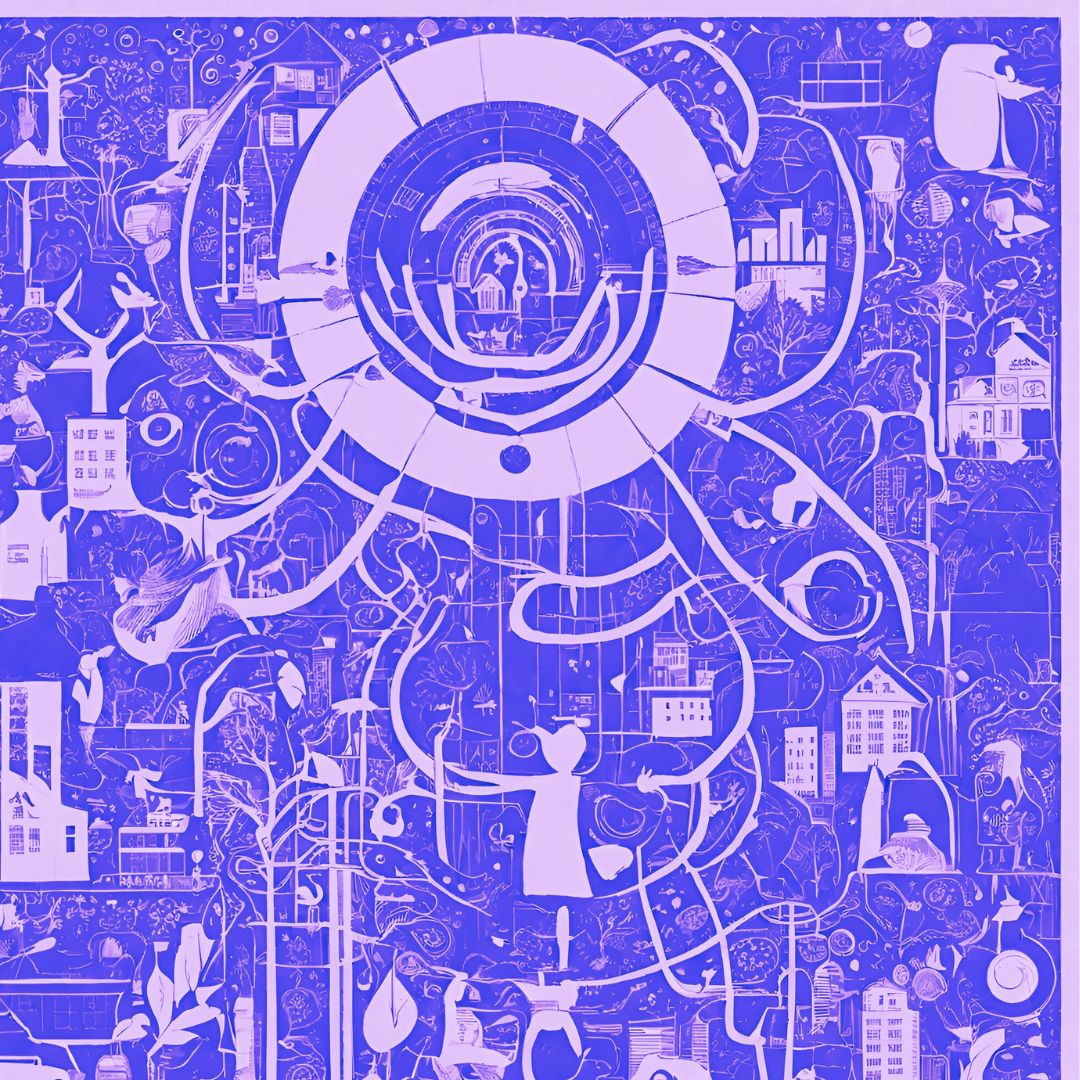News
DYNERGY: A look to the future
[09.12.2024]
 Foto: Thatree Thitivongvaroon/Moment/GettyImages
Foto: Thatree Thitivongvaroon/Moment/GettyImagesThe continuing education study program “DYNERGY - Interdisciplinary Studies in the Energy and Raw Materials Transition” is constantly evolving. Together with Dr.-Ing. Georg Janicki from the Fraunhofer Institute UMSICHT, Sebastian Nimpsch (university didactics expert and study program coordinator) coordinates the development and implementation of new content. Sophie Schmengler, a law graduate and also a research assistant in the Department of Environmental Sciences, is currently working on the design and implementation of the “Regulatory Affairs” module.
The following modules are planned for the upcoming months:
- Dynamik von Energie- und Rohstoffsystemen: With the modules “Energie & Rohstoffe”, “Modellierung & Simulation” and “Digitalisierung”.
- Futures Studies: Energie, Technologie und Gesellschaft: planned modules include “Regulatorik” and “Methoden der Zukunftsforschung”.
- Technologieansätze für die Sektorenkopplung: These include “Wasserstoff im Energie- und Produktionssystem”, “Power-to-X” and “Carbon Management”.
Each module comprises four learning units and can be completed with a certificate.
The DYNERGY program combines scientific, engineering, social science and legal perspectives with practical content resulting from the close cooperation with Fraunhofer UMSICHT. It is aimed at specialists and managers as well as career changers who want to prepare themselves with sound knowledge for the challenges of the energy and raw materials transition.
Further information can be found on the DYNERGY website.
7th Carbon2Chem® Conference – official conclusion of the second research phase
[08.11.2024]
7th Carbon2Chem® Conference – Official Conclusion of the Second Research Phase
In September 2024, the 7th Conference on Sustainable Chemical Conversion in Industry took place in Berlin. This event marked the conclusion of the second phase of the Carbon2Chem® project, gathering over 200 participants both in person and virtually.
Over the course of two days, attendees explored scientific insights and results from eight years of research into the use of carbon dioxide from industrial process gases as a carbon source for chemical products. The results were discussed by stakeholders from politics, business, and academia.
The conference was opened by Prof. Görge Deerberg, one of the three project coordinators, alongside Prof. Robert Schlögl and Dr. Markus Oles. Reflecting on the project’s progress, Prof. Deerberg stated: "Our takeaway from two phases of research is clear: the Carbon2Chem® concept works." Despite this positive conclusion, the speakers emphasized that further work lies ahead. Key next steps include constructing larger-scale facilities to obtain more differentiated research results and addressing the significant challenge of transitioning these technologies into industrial applications.
Preparing for the Next Phase
The next phase of the project is set to begin in January 2025. This third major phase will span four years, focusing on the industrialization and commercialization of Carbon2Chem® technologies. Challenges include high investment costs and complex legal frameworks.
Further Information:
- Visit the Carbon2Chem® Website for additional details: Verbundprojekt Carbon2Chem® - Fraunhofer UMSICHT
- Watch the project video: Carbon2Chem® – Baustein für den Klimaschutz
E/U/NQ Colloquium in Hagen
[30.10.2024]
 Foto: RapidEye/E+/Getty Images
Foto: RapidEye/E+/Getty ImagesPresenting Research in Theory and Practice
On October 1, 2024, the E/U/NQ Colloquium took place on the campus of the FernUniversität in Hagen. E/U/NQ is part of the research focus E/U/N – Energy, Environment & Sustainability and is aimed at researchers from various disciplines in their qualification phase. This semi-annual colloquium promotes interdisciplinary academic exchange.
Once again, on October 1, doctoral candidates, postdocs, and junior professors from diverse fields came together to discuss their research:
The colloquium began with an engaging workshop led by Dr. Arlena Jung on "Presenting Science." This interactive format encouraged participants to share their experiences and ideas. The knowledge gained in the workshop was then immediately applied in practice, as two short presentations on ongoing research projects followed.
Hannah Charlotte Müller reported on the BMWK-funded collaborative project ZidiNaKo, presenting preliminary findings. The project explores and tests new narratives related to buildings and housing within everyday contexts.
In the second presentation, Sophie Schmengler introduced the research project Carbon2Chem® and discussed its interdisciplinary challenges in the fields of law, natural sciences, and engineering.
Further Information:
- About E/U/NQ: https://www.fernuni-hagen.de/forschung/schwerpunkte/eun/aktuelles-termine/kolloquium.shtml
- About the ZidiNaKo Project: https://eine-gesellschaftsfrage.de/
- About Carbon2Chem®: https://www.umsicht.fraunhofer.de/de/carbonmanagement/kohlenstoffkreislauf.html
- Watch the video: https://www.youtube.com/watch?v=EPN5JFp5m_0
Call for Abstracts: “Practices and concepts of 'care' in sustainability transformations. Critical perspectives in technology assessment“
 Photo: Canva ai
Photo: Canva ai
We invite scholars to present and discuss the empirical value of different concepts of care in critically assessing the role of technologies in the appropriation and economic valorization of nature and related regulatory issues in sustainability transformations. Deadline: 29 April 2024
More info: https://www.tatup.de/index.php/tatup/announcement/view/56
Special Issue on "Transregional Configurations of Just Energy Transformations"
 Photo: deepai
Photo: deepai
Our editorial "Energy spaces: bridging scales and standpoints of just energy transitions" in the Journal of Environmental Policy & Planning is online. Drawing on years of discussions about transforming the energy sector and focusing on the technical and economic feasibility of doing so, we argue here for a focus on space and place-based research. After all, phasing out fossil fuels has become feasible, but phasing out the political, cultural, and social legacy of fossil fuels is a prerequisite for a just transition. The collection of articles contributes to place-based research and focuses on peripheral and fossil fuel-producing regions in the global North and South.
online. https://doi.org/10.1080/1523908X.2023.2193024
Online-Workshop: Transformative Research in Cities - November 29th 2022
 Photo: Universität Duisburg-Essen
Photo: Universität Duisburg-Essen
In advance oft the 4th KoMet-Day ‘Urban Complexity: Science Perspectives of Complexity and Transformation on Sustainable Urban Development’ young scientist workshop Transformative Research in Cities: Present and Future takes place. Organized by the young researcher network Urban System Group the workshop trys to get a deeper understanding of (1) discourses of transformative research practice in sustainability transition cases from the Global South and North, opportunities and challenges of methods like data modelling and scenario simulation in such projects (2), and to discuss (3) roles researchers have in transition processes and handling associated challenges to discuss.
Speakers:
▶ Prof. Dr. Derk Loorbach DRIFT, Rotterdam
▶ Ass. Prof. Kristina Bogner, Copernicus Institute of Sustainable Development, Utrecht University
▶ Dr. Sarah Wolf, Department of Mathematics and Computer Science, FU Berlin
▶ Sean Goodwin, Global Basque Center for Climate Change
▶ Rico Herzog, City Science Hamburg, Hafen Universität Hamburg
▶ Katharina Schiller, Fraunhofer Institute for Systems and Innovation Research ISI, Karlsruhe
*******************************
Website: https://metropolenforschung.uaruhr.de/
Date: Online-workshop November 29, 2022, from noon to 4:30 p.m.
For the detailed program please see the following LINK.
REGISTRATION: To register, please email metropolenforschung@uaruhr.de. Please include the following information: Title / First name / Last name /Institution / Email. You will receive the access data via email a few days before the workshop.
Consumers for sustainable industry?! The role of participation and communication in the chemical industry
 Photo: BIO.NRW.eco
Photo: BIO.NRW.eco
As part of EU Industry Week 2021, BIO.NRW.eco invited scientists, young entrepreneurs and representatives of large companies to the webinar „Driving Change – How Green Chemistry and Digitalisation lead the way to a Sustainable Economy“ to explore the question of how industry can be made circular and sustainable
Driving Change – How Green Chemistry and Digitalisation lead the way to a Sustainable Economy
The chemical industry is of central importance in this context, as it is an important component in almost all value chains. Therefore, it is a good starting point when it comes to increasing sustainability across industries.
One aspect are new and innovative production processes and the involvement of different stakeholders. In this context, Dr. Julia Reinermann highlighted the important role of consumers in her presentation and during the panel discussion. She presented innovative methods of participation and communication. These enable broad participation, which can ultimately increase the acceptance of sustainable production conditions.

